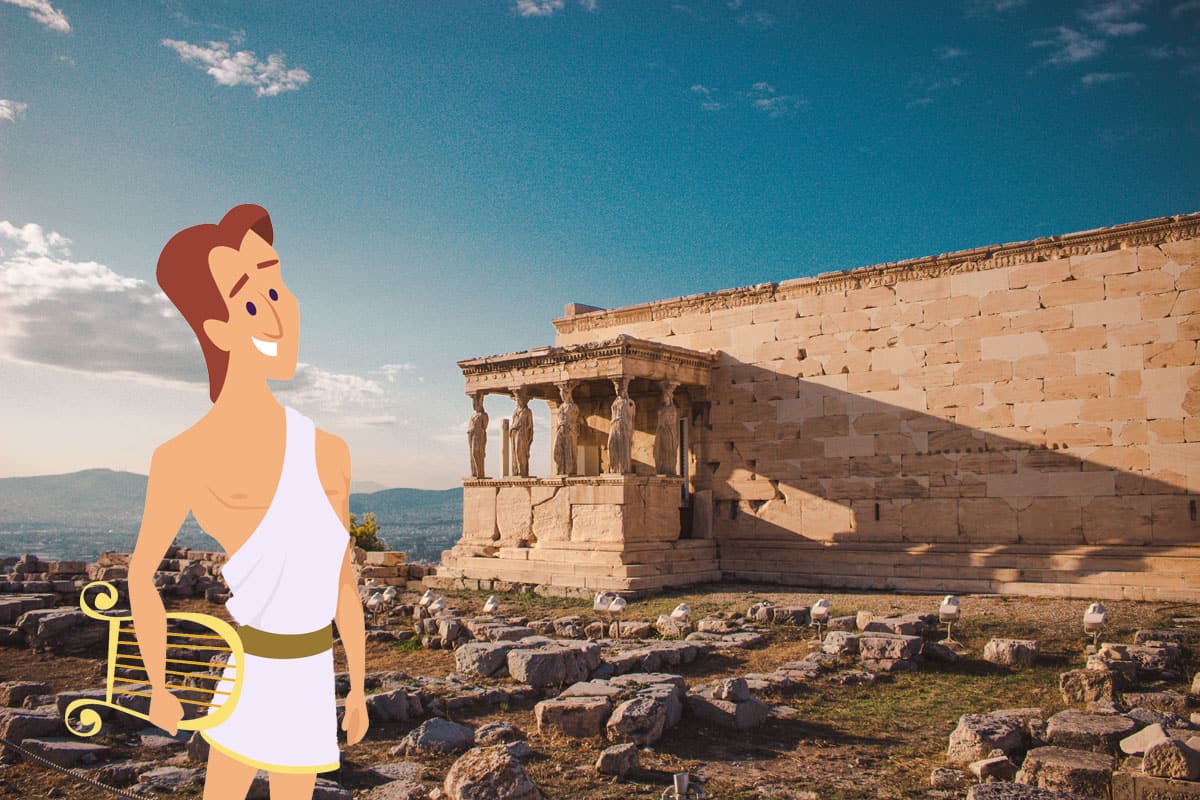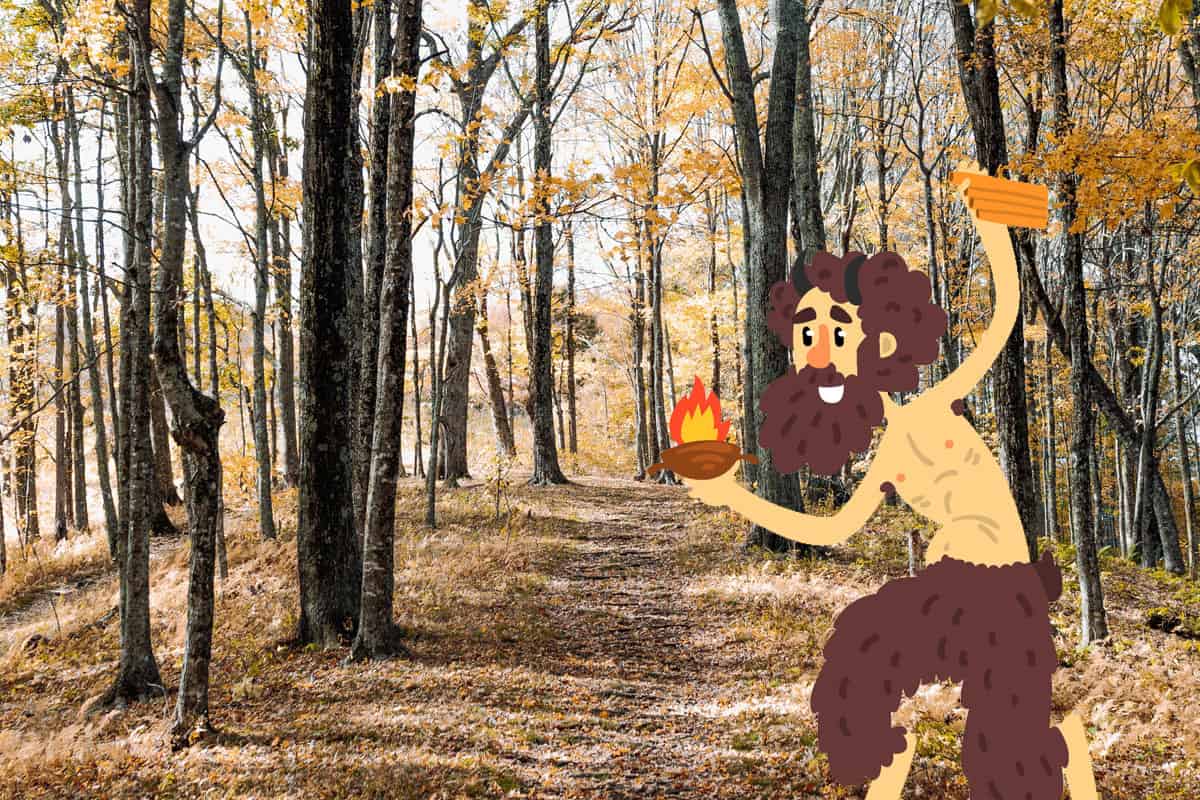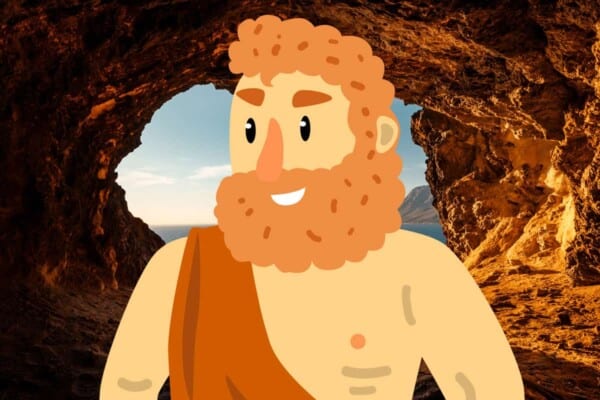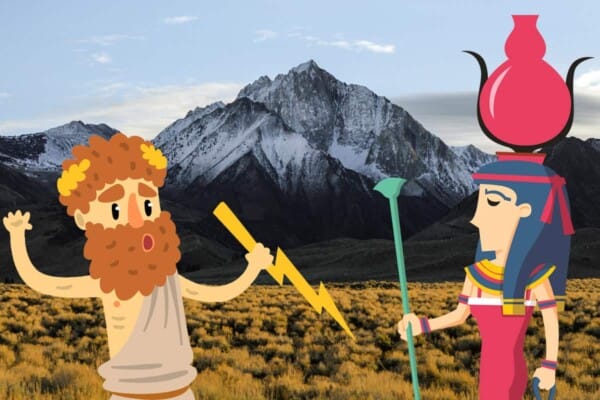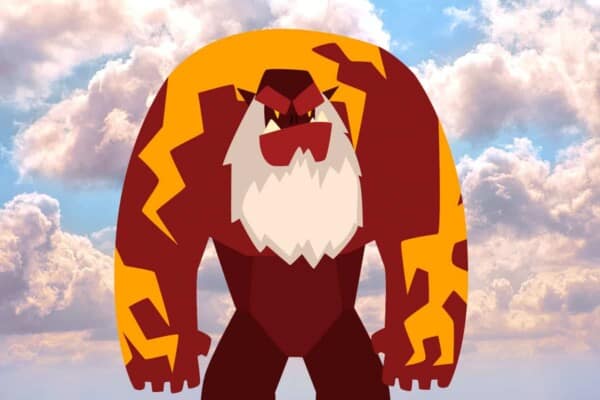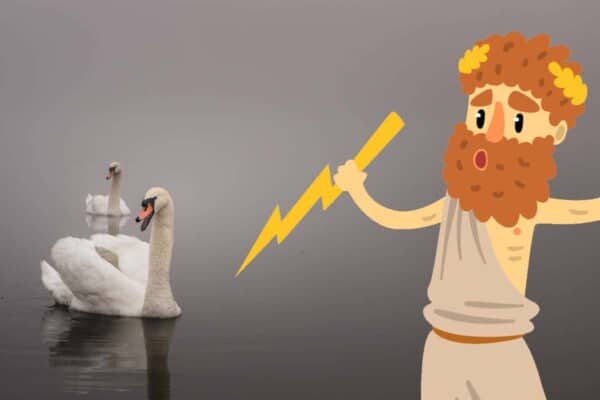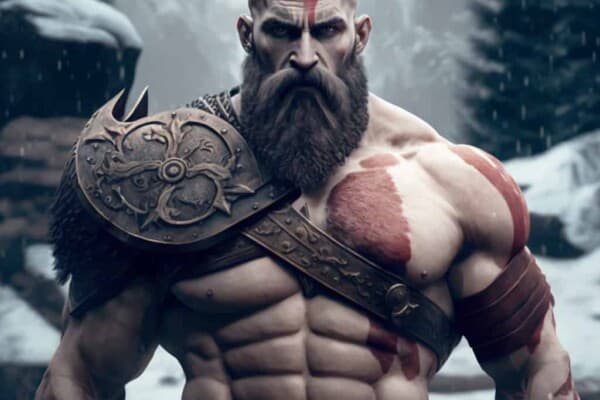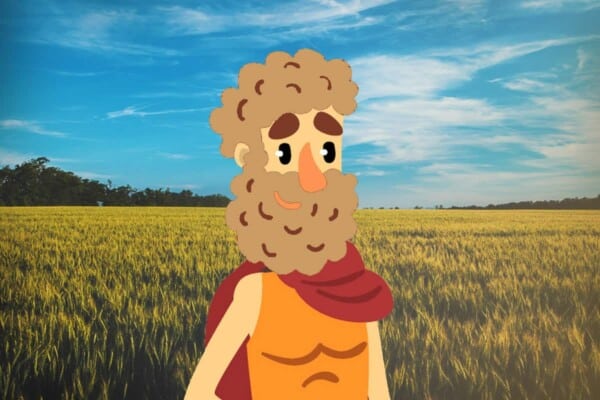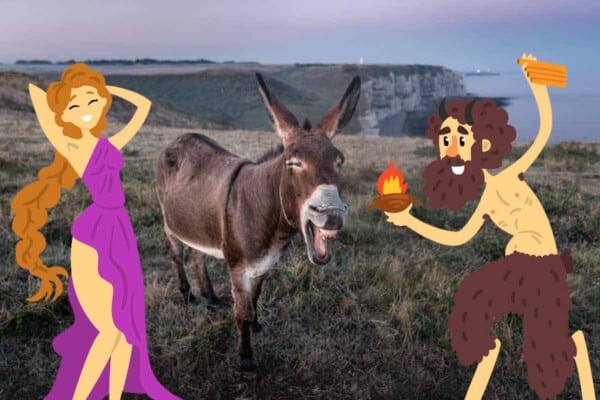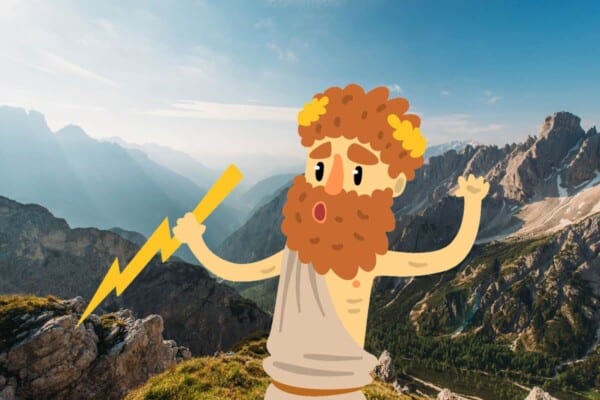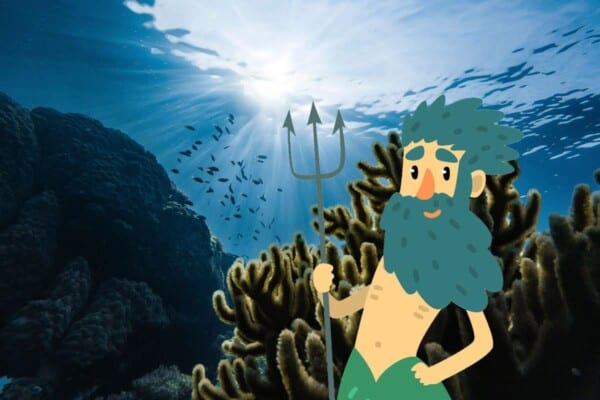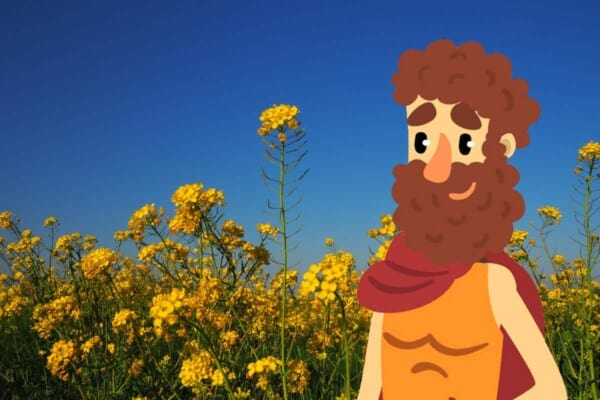Apollo was one of the lesser known Olympian gods. That being said, he was certainly very interesting in his own right. He played a major role in the Trojan war, he had his fair share of lovers and affairs, and he governed over the realm of prophecy. So, of course he must be interesting.
There are countless intriguing myths involving Apollo, so lets dive in and find out a little about this Greek god.
Apollo Myths and Stories
The Birth of Apollo
The Titan, Leto had an affair with Zeus. She ended up conceiving the twins’ Apollo and Artemis. When Zeus’ wife Hera found out, she was furious. She forbade everyone from letting Leto rest so she could have the twins. Zeus didn’t like how Hera was treating Leto, so he stepped in. He asked his brother, god of the sea, Poseidon, and the north wind, Boreas, to help her. Poseidon took Leto to Asteria where she gave birth to Apollo and Artemis.
The importance of this myth is Apollo and Artemis were very fond of their mother and were always by her side. They were known to have protected and avenged her on numerous occasions, the first time occurred when Apollo slew the Python that had been sent by Hera to torment Leto. Apollo ended up killing the Python at the sacred place of Delphi, which resulted in Zeus sending Apollo to be purified.
Apollo and Orion
Orion was known to be the most handsome man alive. He was a giant who was a great hunter of both animals and women. The goddess of hunting, Artemis, fell in love with Orion and they started up a relationship. But, Apollo being very jealous of his sister having affection for anyone else, took it upon himself to get rid of Orion. He went to ask his grandmother, Gaia (earth) for help. Gaia sent a huge scorpion after Orion. Orion fought the scorpion but no weapons would work against it.
He finally went into the sea and escaped from the scorpion. At this time, Apollo was leading Artemis to the sea and telling her that the head she saw bobbing above the water was an assailant who had been attacking her nymphs. Artemis couldn’t have this, so she strung her bow and shot an arrow at the bobbin head. It ended up going right through Orion. When Artemis discovered who it was she had actually killed, she was beyond herself in grief.
Artemis ended up making Orion immortal and put him in the vault of heaven so he could follow his passions among the stars.
Apollo and Admetus
Apollo tended the herds of the king of Thessaly for a year when Zeus had decided to exile him. The king was a very kind man who didn’t know who Apollo actually was, but treated him the exact same way he would any man, with complete kindness. Apollo wanted to return the king’s kindness one day. This day came when Admetus died an untimely death.
Apollo called on the Fates and argued for Admetus to be returned to life. The Fates agreed, but only if Apollo could find someone to take Admetus’ place in the Underworld. Admetus’ wife, Alcestis offered her own life in return for her husband’s. But, the Greek hero, Heracles, ended up rescuing her and taking her away from the Underworld because he too owed Admetus a debt.
Both Admetus and Alcestis were saved from death and went on to live out their lives.
Apollo and Cassandra
Cassandra was a beautiful princess who was promised wonderful gifts by Apollo if she would let him lay with her. He tried everything he could to make her happy with his advances. He even gifted her with the ability to see the future. But, Cassandra was not interested in Apollo. This infuriated him. He decided to punish her by making her ability to see the future be a gift no one would believe. Even though the prophecies she would deliver would be true, no one would ever believe her.
She was the one who foresaw Paris capturing Helen, the Spartan Queen. She was also the one who warned people not to drag the Trojan horse into the city. When Cassandra was eventually taken by Greek leader, Agamemnon and made into a concubine, she foretold of his murder by the hands of his wife. Yet, once again, her warnings were ignored.
If Apollo never caused Cassandra’s prophecies to be seen as false, she may have been able to change the course of the Trojan war. Had the Trojan horse not been brought into the city, the downfall of Troy may have never taken place. This is perhaps one of the biggest significances we can take from this myth.
Apollo and Laomedon
When Apollo and Poseidon fought with Zeus, Zeus decided to punish them by having them work alongside man for a year. Poseidon and Apollo went to the King of Troy and offered to build him tall walls that would defend his city from invaders. Once finished, the king refused to pay them for the completion of the task.
Apollo didn’t take this well and ended up sending a plague through the city. Poseidon also struck back with a large sea serpent. Laomedon had no choice but to appease the sea serpent with the sacrifice of his daughter, Hesione. He tied her to a rock where she stayed until Heracles came by and saved her. The king had also promised Heracles his fancy horses if Heracles would save his daughter. This was a deal the king also went back on.
When Heracles saved Hesione, he expected his reward of special horses from the king. But, with the king going back on his word, Heracles never received any payment. This resulted in Heracles returning to the city at a later date and tearing it apart with his army. He also killed King Laomedon along with the king’s sons. This myth is important as it shows Apollo’s need for revenge and how revenge can lead to terrible consequences in the lives of many.
Apollo and King Midas
King Midas judged a music contest between Apollo and the god, Pan. Kind Midas made the mistake of choosing Pan as the winner over Apollo. This lead to Apollo becoming angry and giving Kind Midas’ donkey ears as a way to show the king’s stupidity. Each day King Midas would try to hide these new ears by wearing a hat, but he was unable to hide the ears when he was at the barber to get his hair cut.
The barber promised King Midas he would never tell anyone about the donkey ears. However, the barber couldn’t keep such a hilarious discovery a secret, so he ended up whispering the secret into the ground. Reeds grew up from the hole where the secret had been whispered into and every time they were rustled by the wind, they would say, “Midas has an ass’s ears!”
The importance of this myth is it shows what kind of god Apollo was. He was very much known to be vengeful to those who wronged him. Where Zeus was always fair in his judgements, Apollo was very childlike in his.
Apollo and Asclepius
Apollo had a son named Asclepius with the princess of Orchomenus, Coronis. His son inherited his ability to heal. Apollo’s sister, Artemis, ended up killing Coronis because she slept with someone behind Apollo’s back. The god, Hermes took Asclepius away as an infant to keep him safe and gave him to the kind Centaur Chiron to raise.
Chrion taught him arts and medicine. When fully grown, Asclepius’ was capable of bringing the dead back to life. He did this from time to time and it greatly infuriated Zeus. Zeus believed that once mortals die, they should stay dead in the Underworld. So, in a fit of rage, Zeus threw a thunderbolt at Asclepius and ended up killing him. Apollo chose to take revenge on Zeus for killing his son and killed all of Zeus’ servants, including the Cyclopes.
The significance of this myth is that it led to Apollo begging for his son to be returned to life by Zeus and Zeus doing just that. In a way, in shows, Zeus could be somewhat hypocritical in his decision making.
Apollo and Chione
A princess of Thessaly, Chione, gave birth to two twin sons. One had been sired by the god Hermes, and the other had been sired by Apollo. Apollo’s son was a wonderful musician, while Hermes’ son was a great thief. After her sons were born, Chione made a horrible mistake. She hounded Apollo to tell her she was more beautiful than his sister, the goddess Artemis.
Eventually he gave in and said she was more beautiful. Artemis was enraged because she and Apollo had always had a very unique bond. This was not something she wanted to hear from him. In her fit of rage, she killed Chione with one of her famous silver arrows. Apollo did end up intervening by turning Chione into a hawk so she could fly away from the arrows and survive.
This myth shows a bit about the relationship between Apollo and Artemis. They were more connected than a brother and sister should be. It also shows the kind side of Apollo. A side where his judgements aren’t childish or meant to cause harm.
Apollo and the Heliades
The Heliades were daughters of Apollo. Their mother was the nymph Clymene. When Zeus had his son, the god Dionysus, he asked the girls to take care of him. Zeus’ wife Hera had it out for Dionysus and wanted to cause the child harm. So, to protect him, Zeus hid him away with the Heliades.
The girls also had a brother, Phaeton, whose father was the sun god, Helios. They loved their brother very much. One day when Phaeton decided to drive his father’s chariot, he lost control and ended up scorching the earth. Zeus was so upset that he threw one of his infamous thunderbolts at the boy and killed him on the spot. The Heliades were so upset that Apollo ended up turning them into popular trees.
Apollo and Hyacinthus
Hyacinthus was a mortal known for his beauty. He was also known to have caused a feud between Apollo and Boreas (the North Wind) because both were very taken with him. But, Hyacinthus preferred Apollo over Boreas. This upset Boreas greatly. One day when Apollo was out throwing a discus, Boreas puffed and the discus was thrown off course.
It ended up hitting Hyacinthus in the head and killing him. Apollo was not about to let the boy be taken down to the Underworld with Hades. He made the decision to keep him alive in some way, and so he changed Hyacinthus into a beautiful purple flower called the hyacinth.
The importance of this myth is it is the birth story for the beautiful hyacinth flower. It is also a precursor to the sacred rituals that would be performed in early spring by the Spartans.
Final Thoughts
Apollo was often thought of as one of the more just and fair Greek gods. But as you will have read, he also had something of dark side to his personality. His exploits in the Greek myths make for some of the best stories to read about.
I hope you enjoyed taking the time to read our overview. Thanks!

